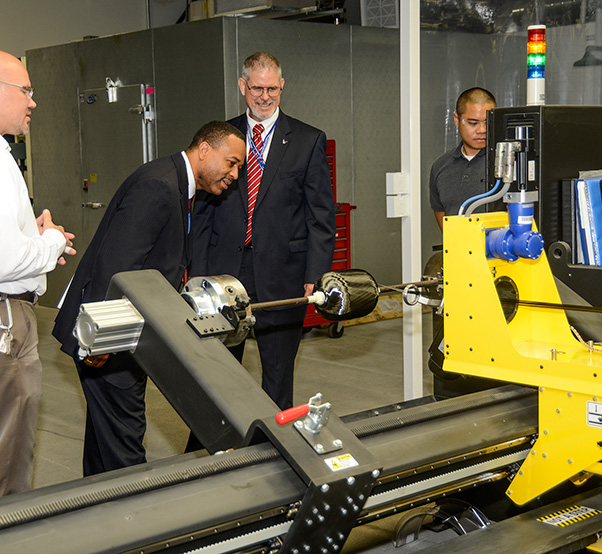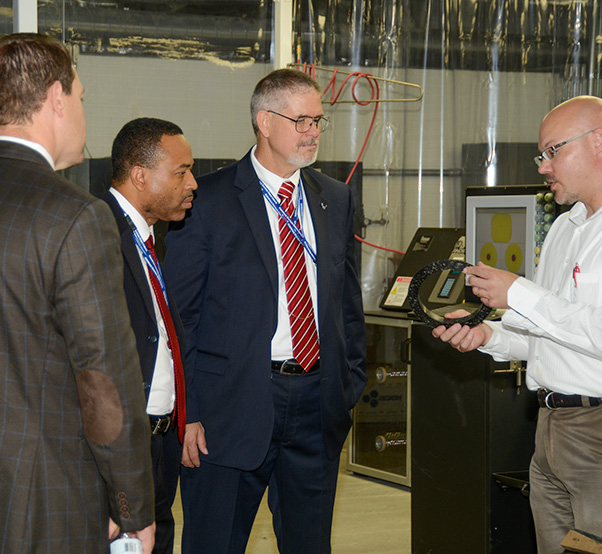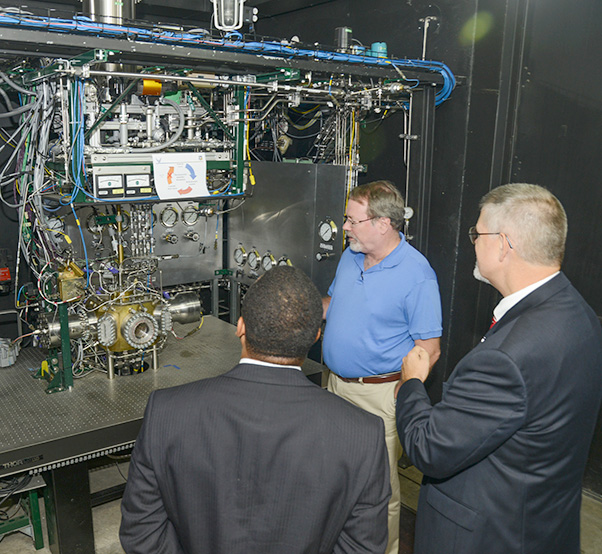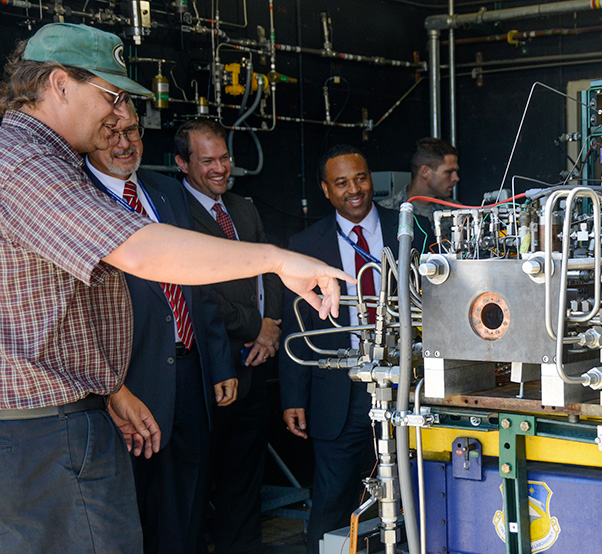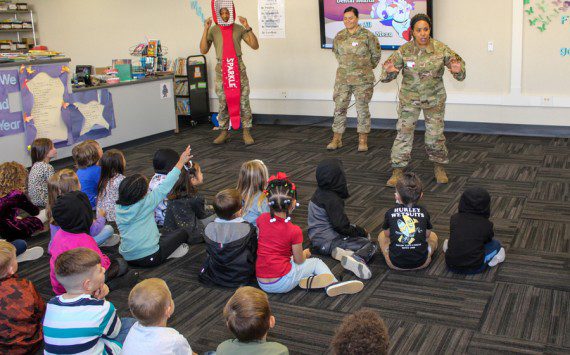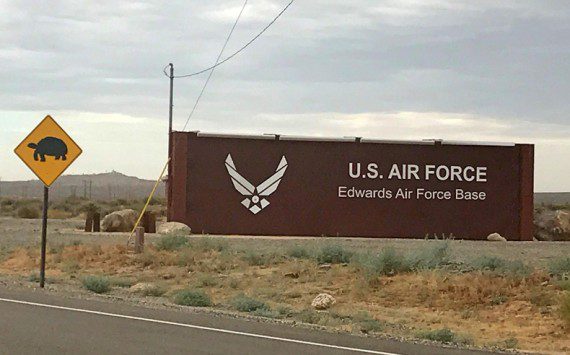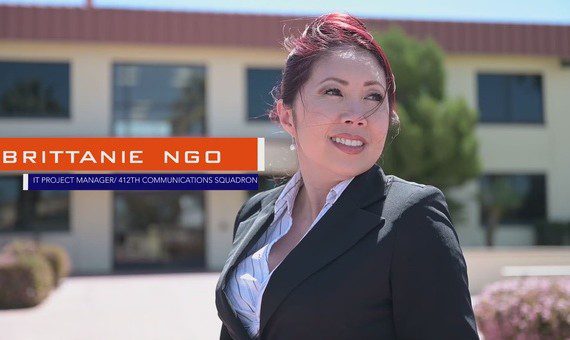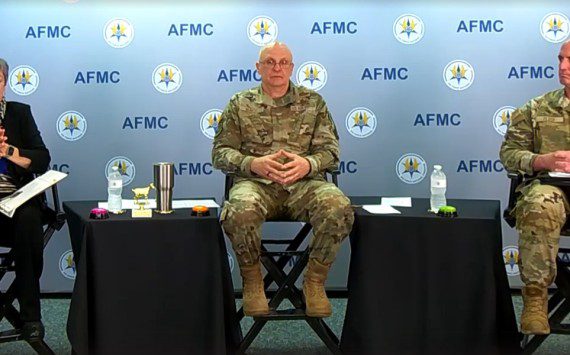Dr. Dave Walker (center), Deputy Assistant Secretary of the Air Force for Science, Technology, and Engineering, Office of the Assistant Secretary of the Air Force for Acquisition, is shown a composite polar boss by Dr. Greg Yandek (right), Air Force Research Laboratory chemical engineer. The composite polar boss made here at AFRL at Edwards would replace a heavier metal boss on a rocket motor, which allows installation of igniter on one end and nozzle on the other end.
Dr. David E. Walker visited the Air Force Research Laboratory facilities here at Edwards Sept. 23.
Walker is a member of the Senior Executive Service and is responsible for all Science & Technology for the U.S. Air Force. This includes preparing policy, guidance, and advocacy for the Air Force’s annual $2 billion science and technology program. Walker provides annual testimony to Congress, technical advice and counsel to the Air Force Acquisition executive, and the Air Force’s science and technology recommendations to the Office of the Secretary of Defense.
Walker received updates on technology efforts in a variety of AFRL areas. He visited several in-house facilities supporting booster developments for a High Speed Strike Weapon, Hydrocarbon Booster engine development risk reduction and future tactical and strategic missile systems development supporting the Ground Based Strategic Deterrence, which will replace the current Minuteman III Intercontinental Ballistic Missile.
Dr. Doug Talley (center), Air Force Research Laboratory research scientist, shows Dr. David Walker a test rig used to understand the combustion physics inside a liquid rocket engine during the senior executive’s visit Sept. 23, 2015.
Other updates provided to Walker involved technologies to increase the range or throw weight of missiles by using newly-developed composite rocket motor cases, improved insulation and nozzles, and new rocket propellants.
According to AFRL, since 2000, its Rocket Propulsion Division has seen over 170 applications and transitions of its technology to government and commercial systems and has supported over 30 research and development, and test and evaluation activities.
Walker is also responsible for overseeing a broad range of engineering and technical management policy spanning systems engineering; environmental safety and occupational health; industrial preparedness; and functional management of more than 14,000 military and civilian scientists and engineers.
He is a retired Air Force officer and graduate of the U.S. Air Force Test Pilot School located at Edwards.
Research scientist Dr. Steve Danczyk, Air Force Research Laboratory, shows Dr. David Walker, a liquid rocket engine test rig used to test individual rocket components prior to scaling them up and integrating them into a full-scale rocket engine.
Dr. Greg Yandek (from left), shows Joe Gordon and Dr. David Walker a filament winder for composite rocket motor cases. Walker is a senior executive for the Air Force and is responsible for preparing policy, guidance and advocacy for the Air Force’s annual $2 billion science and technology program.






